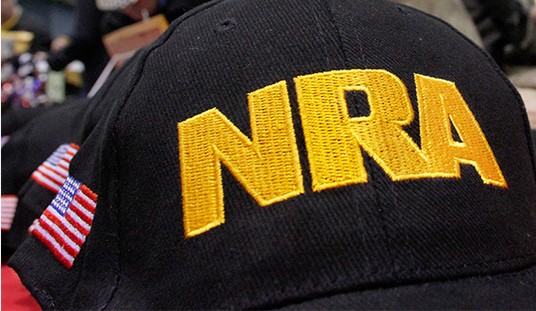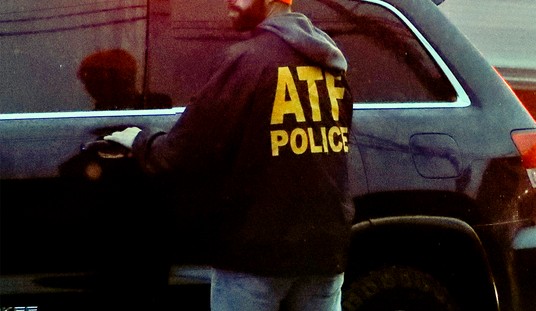So you are thinking of adding a new puppy to your family. That is exciting. It will be a commitment of love and dedication for many years to come, sometimes 13 or more, so it should be a well thought-out decision.
Christmas is coming and what a romantic idea for a gift, a puppy with a bow around his neck sleeping under the tree. I commend you on being romantic but stop; it is never a good idea to purchase a pet for someone else to care for without answering some important questions. Answering those questions will involve the new owner and thus, an animal is never a good surprise present. It’s a process that will take some time and thought. By involving the new owner in this process you will more likely find that perfect companion
Here are a few of those questions to ask;
• What activities do you want to participate in with your new dog?
• Do you want an inside dog or an outside dog?
• What breed of dog is best for your situation and family dynamics?
• Where do you find that puppy or do you want an older trained dog?
• Do you have the time in the next month or so to train the new puppy to be acceptable in your home?
• If you have other animals, how will they get along with the new puppy?
• Do you have the finances to keep that new puppy healthy, happy and safe for many years to come?
• Think forward several years. Could your family dynamics change with a new baby, new job, and going off to college or caring for elderly parents? How, if any would this affect the animals in your home?
• Will you have the time and energy required to take care of that dog for his entire life?
These are a few things that need to be thought though before walking out the door, so you will be better equipped to find your new companion.
What activities are you and your new dog going to do together? I love the sport of hunting. Upland bird hunting is such a thrilling game and can be enjoyed both in the hunt and competition to show those skills. Do you hunt? What game do you hunt? Is it dove, quail, pheasant, etc.? Each breed will be different in what has been embedded in that breed genetically. For upland bird hunting, the pointing breeds are genetically disposed to point the birds. If you enjoy hunting duck, dove or any type of flight bird, the retrieving breed has been bred to wait on the shot then retrieve the downed bird. Is deer hunting your game? Have you ever shot a trophy buck and lost him in the woods? A tracking breed will pick up the scent and find that deer. Several breeds are good for multiple types of hunting.
 So, you don’t hunt. You want a friend to snuggle with you by the fire, or accompany you on your daily runs. You will be looking for a breed that naturally have energy levels and size that will work with those activities. For example, a Chihuahua will have a hard time keeping up with you on a two mile run, and that Saint Bernard may cut the circulation off in your legs while sleeping in your lap. Think about breeds that inherently have health issues like being prone to ear infections and those who have dander that may cause allergies that could affect the members of your family. Other breeds may have breathing issues due to compact noses etc. There are breeds that cannot be left to get cold. Many times those issues mean you will become very familiar with your veterinarian.
So, you don’t hunt. You want a friend to snuggle with you by the fire, or accompany you on your daily runs. You will be looking for a breed that naturally have energy levels and size that will work with those activities. For example, a Chihuahua will have a hard time keeping up with you on a two mile run, and that Saint Bernard may cut the circulation off in your legs while sleeping in your lap. Think about breeds that inherently have health issues like being prone to ear infections and those who have dander that may cause allergies that could affect the members of your family. Other breeds may have breathing issues due to compact noses etc. There are breeds that cannot be left to get cold. Many times those issues mean you will become very familiar with your veterinarian.
Your local vet can also talk with you about costs associated with owning a dog and more particularly specific breeds of dogs. The costs will differ from dog to dog. Preventative heartworm medication is usually given monthly. The size of the dog will determine the cost of the medication. Snake vaccine for dogs that are in areas of the country where poisonous snakes are prevalent is an added cost. Grooming cost may apply to keep a breed of dog healthy. Calculate the costs. One breed can be much more expensive to maintain than another. This doesn’t even include food or annual check-ups with your veterinarian.
Now that you have decided what you want to do with your dog and what situation is going to be best for your family. How do you find a breed that fits? American Kennel Club, www.akc.org, has a great web-site that can tell you about each breed. They also have a questionnaire to help you match the right breed to you and your family. If you have your heart set on a particular breed, maybe because you like the way they look or that breed is popular at this time, research that breed carefully. The popular dog may not fit your family situation. Go online or to your library to search information on specific breeds.
Give your local dog trainers a call. They should be more than happy to talk with you and show you the different dogs they are working with at the time. Local rescue groups are very knowledgeable on their specific breeds and are very willing to talk with people about those dogs. Your local veterinarian is also a very good source of information. You will have a long relationship with your vet once you bring your new companion home. The staff and doctors where I take my dogs greet me and all five of my dogs by name.
You’ve done your research and found the type of dog that will best fit with your family. There are many places to find your new companion. Reputable breeders, rescue groups and local animal shelters are good places to start. I’m not saying that one is better than the other. It’s you and your situation that will determine that decision. Let’s talk about the differences and things to look for.
Your local animal shelter will have many different types of animals. Most of these shelters are non-profit or receive very little funding. Let’s keep our conversation about the dogs they house. They have dogs that are: big, little, long hair, short hair, pure breed, mix breed, puppies and older dogs. Some shelters work with the local animal control departments and house lost, abandoned and injured animals. Unfortunately, for whatever reason, some owners have been forced to surrender their animals to these shelters. Variety is abundant. The number of dogs can be large. In some cases you will be able to obtain history about age, parents and disposition, but in some cases there will be no history. For a dog, being lost from its owner is very stressful. Being displaced from what is “normal” is stressful. The professionals at these shelters do everything they can to give individual attention to each dog, but once again the number of animals far surpass the number of shelter personnel. Our local shelter has a great volunteer program where they help exercise and socialize the dogs which help to relieve that stress. I live in a city that loves to run. Our shelter is on the path of our most popular running area. These volunteers sometimes come in and pick up a running partner for their run that day. These volunteers help in relating to the shelter a dog’s personality. What a great program, for the dog and the runner.
Should you find your new companion at one of these shelters, you will be asked to fill out an application and the shelter will talk with you about your situation and what your expectations are for your new dog. You should spend as much time as possible with that dog before making a commitment. Once again there may not be any history on this dog, and inevitably the dog will be stressed. Spend time getting to know him. The goal for the shelter is to place their dogs in new homes. They will do everything they can to make sure the owner and dog are a good fit. The worst thing that can happen is that the dog is once again returned to the shelter.
Rescue groups are great places to look for a new dog. Usually breed specific, these groups are non-profit and are truly concerned with placing that breed with the right permanent family. You can find rescue groups all over the country by searching on the internet by breed followed by rescue group, or The American Kennel Club has a list of breed specific rescue groups, searchable for your area, on their web-site www.akc.org/breeds/rescue.cfm . These groups many times have wonderful web-sites that are filled with detailed information about specific breeds of dogs. They will be very frank about discussing the difficult or down side to a particular breed. This is because they want each new owner to be completely knowledgeable about that breed. For example a certain breed may be inherently good at getting through enclosures and escaping or may have a very high energy level.
The foster parents for these groups have to go through a comprehensive screening process just to be able to care for these dogs. The foster parents have to be knowledgeable about that breed. These groups are volunteer based and care for these dogs in their homes. It is because they love the breed that they participate. By being in a home environment and having individual attention, these dogs are less stressed out by the new circumstances. My friend Cathy is a foster parent for two groups where we live in Texas. She has related that in many situations a foster dog will be given up by their first owners because they weren’t aware of what it would take to care for that breed of dog. While in the foster home, the foster parent is able to get to know that individual dog. Training the dog isn’t a particular goal for foster parents, but they will spend time socializing and exercising him, getting to know the behavior of that dog.
Rescue groups take placing a dog very seriously. In many cases the prospective owner will be asked to fill out a detailed application and go through a screening process to make absolutely sure the two will be a good fit. This may include a visit to the prospective owner’s home. I tip my hat to these special dog lovers. They love and nurture animals that are in transition and work very hard to insure a bad placement won’t happen to the dog again.
When you get a dog from a reputable breeder (and I do emphasize reputable), you will be able to see multiple generations. Genetics play a huge part of how that dog will grow to an adult, not just the dog’s look but his/her character as well. You will know basically how your dog will be by looking at the behavior, size, energy level and personality of the parents. Of course, every dog is different, even within the litter, but you will have a base line to measure by. The breeder’s job is to spend the six weeks of the new puppy’s life evaluating each pup’s individual strengths and weaknesses. The breeder will know that pup inside and out. A reputable breeder will spend time talking with you about your situation and expectations, matching the right puppy for you and your family. This is a process and takes several visits for you to choose your puppy and the right match to be made. Socialization is very important as a new puppy. Your breeder will have started that process by working with the whole litter along with mother and other dogs on the property. There is a lot of learning for that puppy in the first six weeks with his litter mates. They will understand Alpha from the mother and sharing with litter mates. Most importantly, a reputable breeder will take back a puppy that doesn’t end up fitting your expectations. If they do not agree to this, move on to a different breeder.
I ask my new owners to sign a contract that states that the puppy will come back to our kennel if the owner is forced to give them up for any reason, it doesn’t matter, no questions asked. This means at any age. To a reputable breeder, money is not the reason to breed. It’s the joy of passing on outstanding genetics. In many cases, breeders will not breed a female unless they have applications waiting for a particular litter. Some breeders will have older trained dogs. They may be “started” in specific training like basic commands or hunting skills, or “finished” which means that dog has completed all his training and is ready to take home or hunting.
Much has been reported on the “puppy mills”. All that can be said is, how horrifying for those of us that take breeding a litter a serious responsibility. Enough said.
I do advocate spaying and neutering your animals unless you are a reputable breeder and understand the responsibility and costs of bringing a litter into the world, and it’s not to make money. A female in heat takes a lot more supervision and care to prevent accidental breeding. A stud male can become so excited that he will break through enclosures. Consult your veterinarian for the best time to spay and neuter your dog.
These are just a few things to consider as you make your way to a new companion. Please remember it is a commitment which, if taken seriously, and with good research, can bring years of happiness and unconditional love to you and your family.
Remember, whether in the field, back yard or kitchen: Never miss an opportunity to train.








Join the conversation as a VIP Member